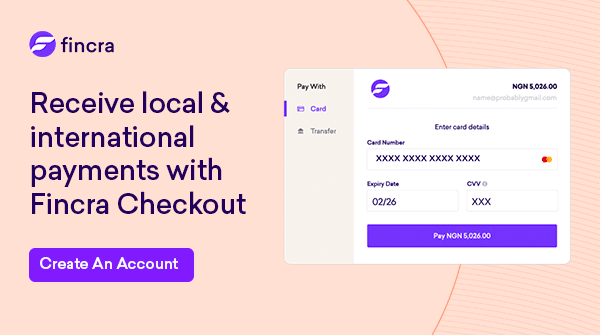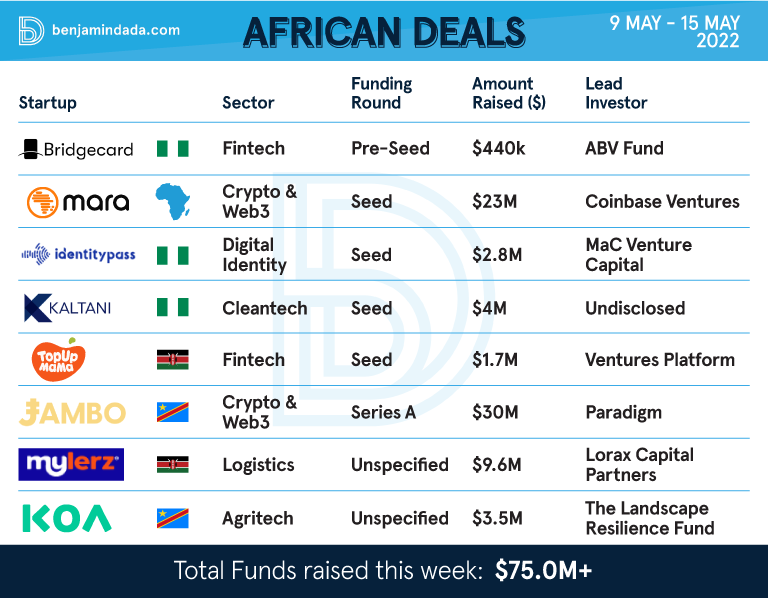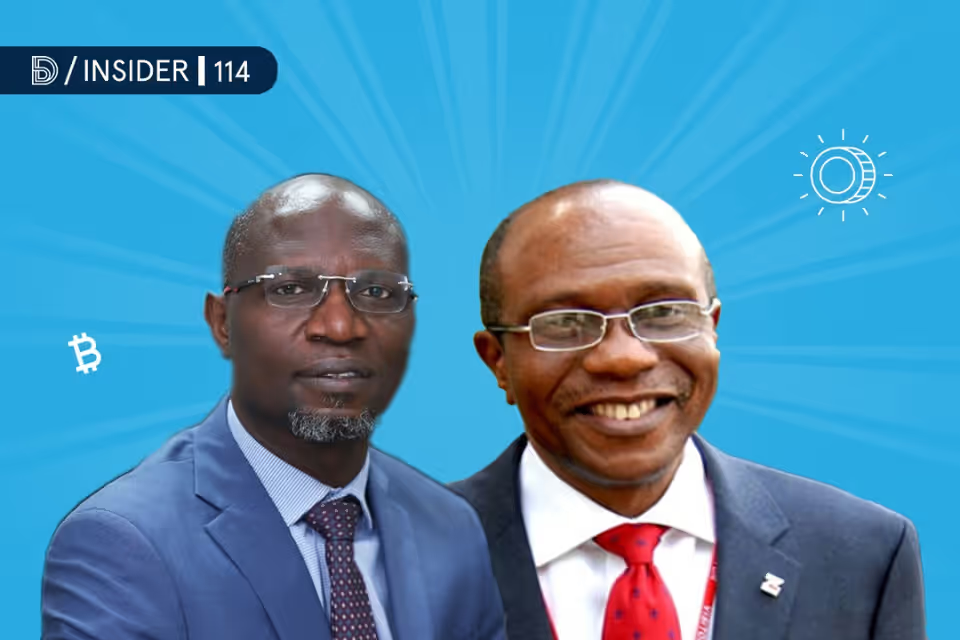Lately, we’ve found that we are doing a lot of crypto reporting. Well, what can we say? Our job is to chronicle the interest in tech and startups in the markets we cover. And, so far, interest in crypto in Nigeria has grown significantly within the last 12 months than when we launched our publication (June 2018).
Beyond chronicling the space, we also help our readers to connect the dots. Take, for instance, last week, we wrote about Uganda’s stance on crypto and implied a connection between them and the Central Bank of Nigeria. The next day, that connection was coincidentally confirmed by the CBN through a tweet.
Ready for this week’s deep dive?
We’d explore the recent crypto guidelines from Nigeria’s SEC and Microtraction’s updated standard deal.
The SEC issues new regulations to govern crypto in Nigeria, as it should
We have broken this section down to provide historical context, the present state of things, and future projections.
History
Crypto in Nigeria has been a no-go area for many institutions due to the Central Bank’s stance. According to Benjamindada.com’s overview of crypto in Africa, Nigeria—like seven other countries in Africa—is said to have banned or prohibited crypto in their country.
This is how African government’s think about crypto. What’s your country saying? pic.twitter.com/UElrXzErnh
— Benjamindada.com, tech blog (@dadabenblog) May 10, 2022
However, the Securities and Exchange Commission (SEC) whose job1 is to regulate the investment and securities business in Nigeria, has been taking visible steps toward a more open-minded approach.
As of September 2020 (PDF), the SEC’s position was that “crypto asset” is a virtual digital asset2 which is a form of security, unless proven otherwise. Hence, crypto comes under its regulatory purview.
Furthermore, the SEC said that crypto-assets (e.g non-fiat virtual currency) should be registered with them and treated as a commodity “if traded on a recognized investment exchange and/or issued as an investment”.
“The burden of proving that the crypto assets proposed to be offered are not securities and therefore not under the jurisdiction of the SEC is placed on the issuer or sponsor of the said assets”, says the SEC.
Source: SEC’s 2020 statement on Digital Assets and their classification and treatment (Download link below)
The SEC’s openness to regulating crypto is contrary to the CBN’s closeness. So, in February 2021, the SEC released a statement to explain that they do not see a contradiction with the CBN—whose job it is to regulate the banking system. But that their document was geared towards the fact “that trading in such assets [crypto] falls under SEC’s regulatory purview, except proven otherwise”.


One of the conclusions of that press release was that the SEC will continue implementing its Regulatory Incubation Guidelines for fintech firms “who intend to introduce innovative models for offering capital market products and services”.
Now
Twenty months after its previous press release, the Securities and Exchange Commission (SEC) of Nigeria issued new guidelines for the issuance, offering, and custody of digital assets in the country. The SEC says “Digital Asset” means a digital token that represents assets such as a debt or equity claim on the issuer.
The guidelines apply to:
- all platforms that support the trading, exchange, and transfer of virtual assets;
- all issuers and sponsors of virtual/digital assets, including international and non-residential issuers and sponsors; and
- any operator that aggressively targets Nigerian investors
One of the five parts that the guideline speaks to is the rule on Virtual Asset Service Provider.
According to the new rules, entities that intend to offer crypto-related services or products in Nigeria must secure a Virtual Asset Service Provider (VASP) licence. For retail investors looking to invest in an “initial digital asset offering”, the SEC-approved limit is ₦200,000 ($500) per issuer, and ₦2 million ($5,000) within a 12-month period. While institutions and high net worth investors have no restriction on the investment amount.
Future
There is indeed hope that Crypto good gets the green light from regulators in Nigeria. And what better entity to communicate that hope than the Country Manager whose operations were greatly affected by the Crypto clampdown in Nigeria.
Owenize Odia, the Country Manager for Luno in Nigeria told Bloomberg that the regulations “could act as the precursor for a surprise move from the central bank to reverse its approach, providing critical foundations for mass crypto adoption across the country.”
How will the SEC get the CBN to the table? One way it already did that was by pausing the assessment and admittance of all persons and products affected by the CBN’s February 5, 2021 Circular. Next, the SEC will continue to engage with the CBN on a way forward, as promised in February 2021.
“We have engaged with the CBN and agreed to work together to further analyse, and better understand the identified risks to ensure that appropriate and adequate mitigants are put in place, should such securities be allowed in the future”, said the SEC.

Collect local and international payments on Fincra
The Fincra checkout allows merchants to seamlessly collect payment via debit/credit card and bank transfers in GBP, EUR & NGN currencies. Fincra merchants can then payout globally to their wallet or bank account.
Join the likes of Eversend, PayDay, and Grey (formerly Aboki.africa) using Fincra to scale their businesses across borders.
Learn more or sign up with the button below.
This is partner content
Microtraction reviews its standard deal to $100,000
Microtraction, an early-stage venture capital firm based in Lagos has announced a new standard deal. “African startups that get backed by us will receive a minimum of $100k for 7% equity on a post-money SAFE and an option for a quick top-up in their next round of up to $350k as long as we are not more than 25% of the round and meet specific milestones”, the firm said in a statement.
African startups that get backed by us will receive a minimum of $100k for 7% equity on a post-money SAFE
— Microtraction on new standard deal
Five years ago, Microtraction had a standard deal of $15,000 for 7.5% equity in startups. However, in 2020, the investment amount was raised to $25,000 for lesser equity, 7%.
Microtraction said that “we have seen different changes in startup costs and the economic environment and continue to grow with these changes by matching the current tech economic environment.”
When Yele Bademois founded Microtraction in 2017, the organisation’s mission was to be “the most accessible and preferred source of pre-seed funding for African tech entrepreneurs.”
In 2021, the firm invested in 13 companies, including Orda, InstantRad, Bumpa, HoneyCoin, Pivo & eight unannounced deals. In January 2022, Microtraction revealed that 18 of its portfolio companies have gotten into global accelerators—nine in Y Combinator, three in Techstars, two in 500 Startups, another two in ODx, one in Norrsken Impact Accelerator, and one in Google.
The firm added that “82% of our portfolio companies have successfully raised funding post-Microtraction. Across 2 funds, our portfolio companies combined have raised a total of $89m+ and are currently valued at over $653 million.”
What are the standard deals of other African VC firms
After Ingressive Capital raised a $10M fund in 2020, the firm announced that it would be investing between $200,000 and $400,000 in early-stage startups at $2 million valuations for 10% equity.
Meanwhile, Ventures Platform primarily invested an average check size of $50,000 in pre-seed and seed startups. However, with its $40 million pan-African fund, TechCrunch reported that “this fund equips Ventures Platform to participate in Series A deals where it will be able to invest more than $1 million in a single company (including follow-on rounds).” As an aside, today, Ventures Platform announced Dotun Olowoporoku—former Principal at Pan African VC firm, Novastar Ventures—as a new Ventures Partner.


4DX Ventures reportedly writes checks of about “a few $100,000 to a few million” across all stages (pre-seed to Series B).
Noteworthy
Here are some of the interesting stories that we’ve come across in the past week:
- What do the CBN and the Bank of Uganda have in common? Find out!
- Alewa is powering northern Nigeria’s creator economy. How?
- This farmer is using drones to revolutionise agriculture in Africa. Really?
- Is it true that Bolt built its $11 billion payment business on inflated metrics? Find out!
- Nigeria’s smartphone sales up 81% YoY in 2021. Tecno is still at the top!

Job Opportunities
We’ve highlighted three job categories in today’s newsletter. The categories are product & design, data & engineering, admin & growth:
Product & Design:
- Kuda Bank — UX Researcher (Nigeria)
- M-Kopa — Head of Design (Kenya)
- Seedstars — UX/UI Designer (Nigeria)
Data & Engineering:
- Jumia — Senior Java Software Engineer (Nigeria)
- uLesson — Data Analyst (Nigeria)
- uLesson — DevOps Engineer (Nigeria)
Admin & Growth:
- Raise — Content Creator (Kenya)
- Binance — Gov’t Affairs Manager (Nigeria)
- Paystack — Business Lead (Ghana)
Have a great week!
Get passive updates on African tech & startups
View and choose the stories to interact with on our WhatsApp Channel
Explore





